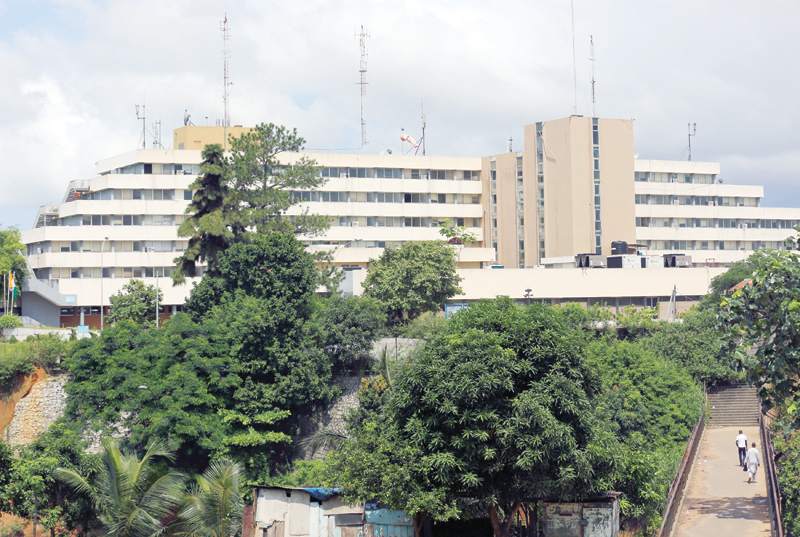

ABIDJAN: The United Nations closed its peacekeeping mission in Ivory Coast on Friday after 13 years during which it ushered the West African nation through a political crisis to elections and played a decisive role in the 2011 civil war.
Despite a rapid post-war revival, the withdrawal comes as rights groups warn a failure to tackle impunity and reform its fractured, mutiny-prone army threatens the long-term stability of French-speaking West Africa’s largest economy.
“The Secretary-General congratulates the people and government of (Ivory Coast) for their determination and efforts in turning the page of crisis and conflict,” a spokesman for UN chief Antonio Guterres said.
The mission, known as UNOCI, was established in 2004, two years after a failed coup attempt set off Ivory Coast’s first civil war, which split the country between northern rebels and troops loyal to then President Laurent Gbagbo.
It was tasked with guiding the country, the world’s top cocoa grower, to a presidential election, which, following several postponements, took place in late 2010 with around 9,000 UN troops in place.
Gbagbo attempted to void results in the north and negate the run-off victory of his opponent Alassane Ouattara, who had been held up as a symbol of northern political and social exclusion.
UNOCI head Choi Young-Jin, who had been mandated to validate the poll results, declared Ouattara the winner, and the majority of the international community recognised him as president.
When Gbagbo refused to step down, UN peacekeepers and French soldiers backed pro-Ouattara rebel fighters. Around 3,000 people died in the ensuing civil war before Gbagbo was captured in April 2011. He is now on trial at the International Criminal Court accused of crimes against humanity.
Under the leadership of Ouattara, who won a second five-year term in 2015, Ivory Coast has emerged as Africa’s fastest-growing economy, attracting interest from international investors. However, UNOCI’s closure, which comes amid a US-driven push to slash the UN peacekeeping budget, follows a wave of army mutinies that have exposed the government’s tenuous grip on its military, cobbled together in the wake of the war.
Analysts and diplomats fear further unrest as Ivory Coast heads towards another presidential election in 2020 to choose a successor to Ouattara, who will have reached his two-term limit.
“The peace dividends the (UN) has contributed to could be reversed unless the Ivorian government addresses pervasive immunity and the army’s lack of discipline,” said Drissa Traore, Vice President of the International Federation for Human Rights.
Amnesty International said at least 10 people were killed and dozens wounded in mutinies that erupted in January when 8,400 former rebels now serving in the army rose up demanding bonus payments.
They twice forced the government to capitulate, in January and again in March, after violence spread to towns and cities across the country. In total, it eventually paid the soldiers 12 million CFA francs ($20,681) each. — Reuters
Oman Observer is now on the WhatsApp channel. Click here



